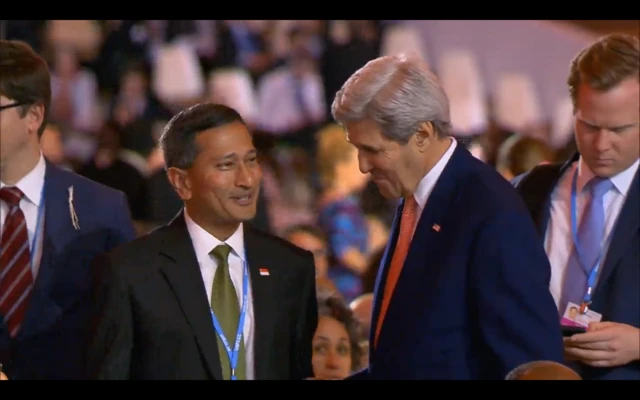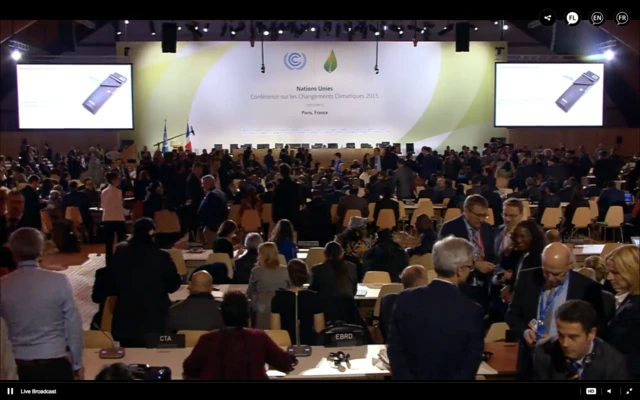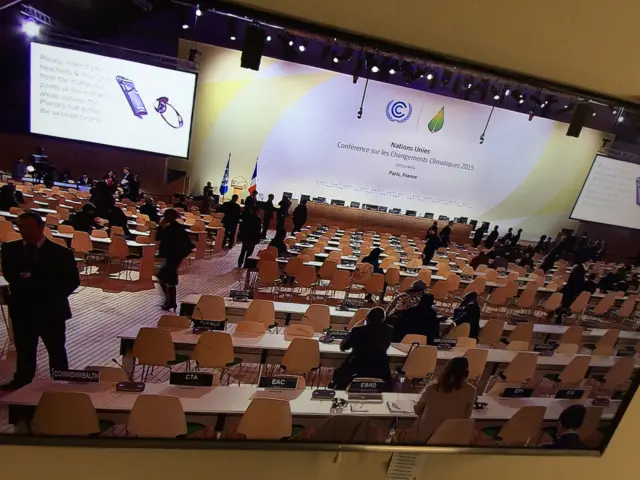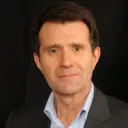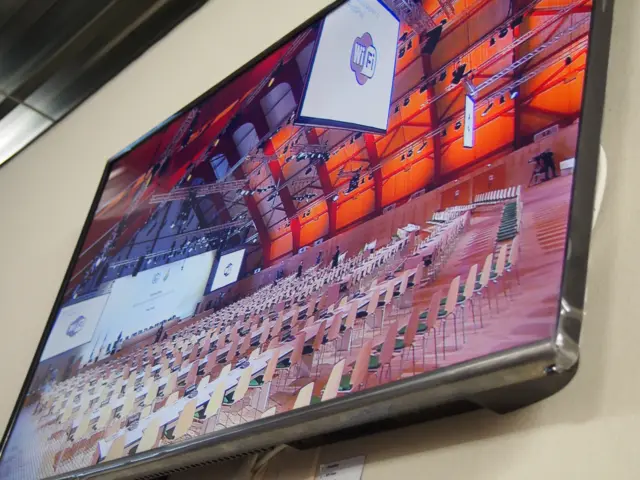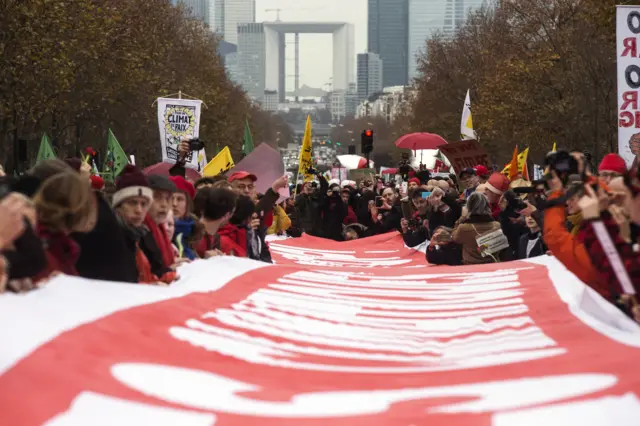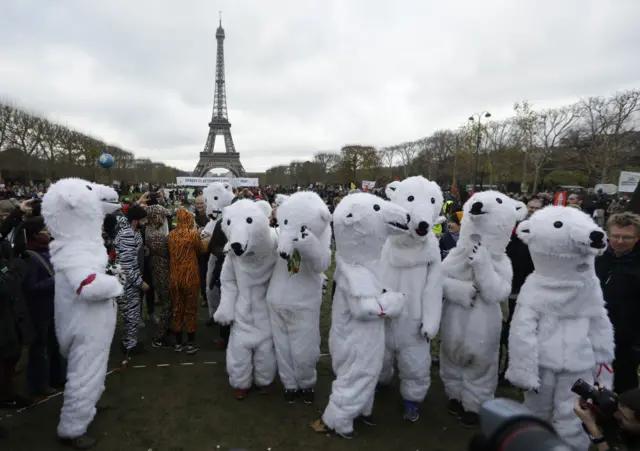Scenes outside the plenary roompublished at 16:47 GMT 12 December 2015
As delegates prepare for the plenary session, journalists and camera crews are also getting ready:

Elsewhere, pavilions and displays are starting to be dismantled...

...and night is settling over the deserted red Eiffel Tower replica:

